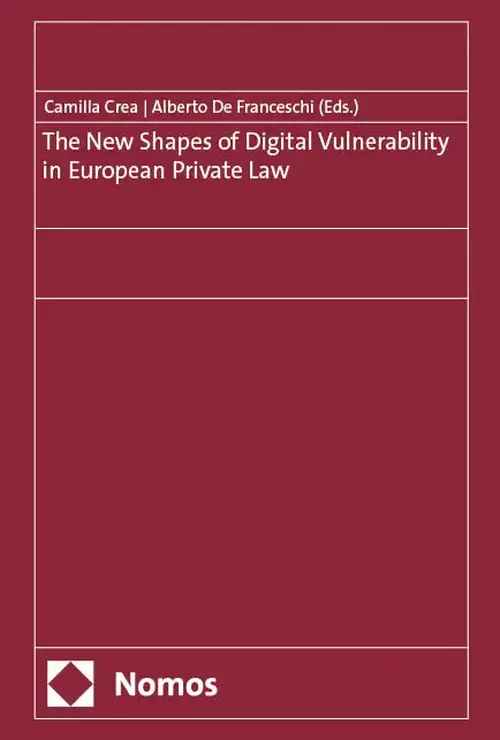
The New Shapes of Digital Vulnerability in European Private Law
This book provides an analysis on whether and how the current European legal framework adequately deals with personal conditions in which digital technologies might prove particularly disruptive. It furthermore assesses how the existing policies and rules could be reinterpreted, reimagined and reshaped. In doing so, it offers a remarkable symbiosis between policy-oriented legal academic work, and more theoretical and philosophical scholarship. In particular, this book provides a more concrete meaning to the fluid concept of digital vulnerability, clarifying how this emerging paradigm may be applied both on a descriptive and prescriptive level; Identifies effective measures/remedies to ensure the utmost protection of those who may be digitally vulnerable against emerging technological threats; Helps to reconsider traditional private law micro- and macro-categories revolving around the notion of digital vulnerability, challenging traditional legal taxonomies. With contributions by Prof. Dr. Mateja Durovic | Prof. Dr. Fabrizio Esposito | Prof. Dr. Catalina Goanta | Prof. Dr. Giovanni de Gregorio | Prof. Dr. Eleni Kaprou | Prof. Dr. Emilia Mišćenić | Prof. Dr. Frank Pasquale | Prof. Dr. Oreste Pollicino | Prof. Dr. Jerry Spanakis.
Nomos, 1. Edition 2024, 536 Pages
all authors: Camilla Crea, Alberto De Franceschi, Frank Pasquale, Oreste Pollicino, Catalina Goanta, Giovanni De Gregorio, Gerasimos Spanakis, Fabrizio Esposito, Emilia Mišćenić, Mateja Durovic, Eleni Kaprou, Niti Chatterjee, Gianclaudio Malgieri, Shabahang Arian, Mateusz Grochowski, Irina Domurath, Teresa Rodríguez de las Heras Ballell, Jura Golub, Gérardine Goh Escolar 吴美姗, Federica Casarosa, Hans-W. Micklitz, Piotr Tereszkiewicz, Katarzyna Południak-Gierz, Patryk Walczak, Alessandra Pera, Sara Rigazio, Denise Amram, Isabelle Wildhaber, Laura Ebert, Léa Stiefel, Alain Sandoz, Reiner Schulze.






